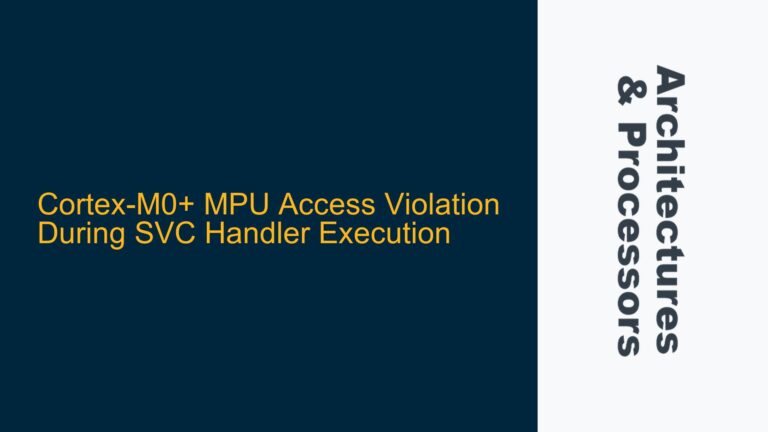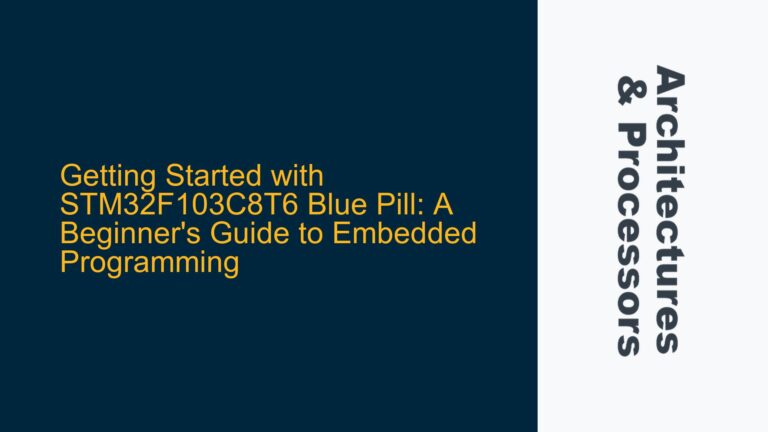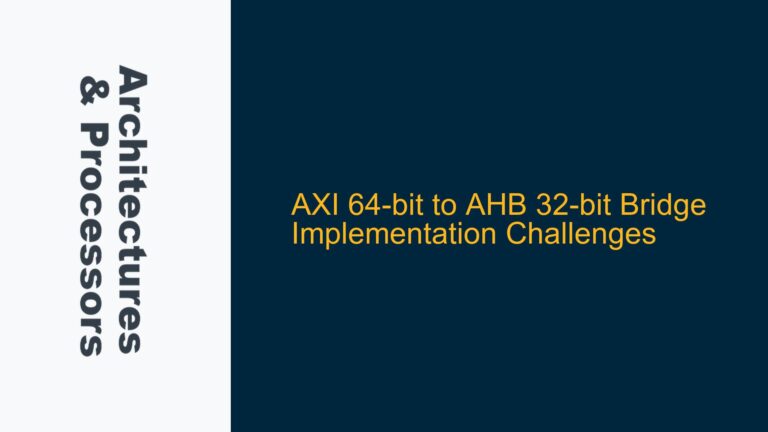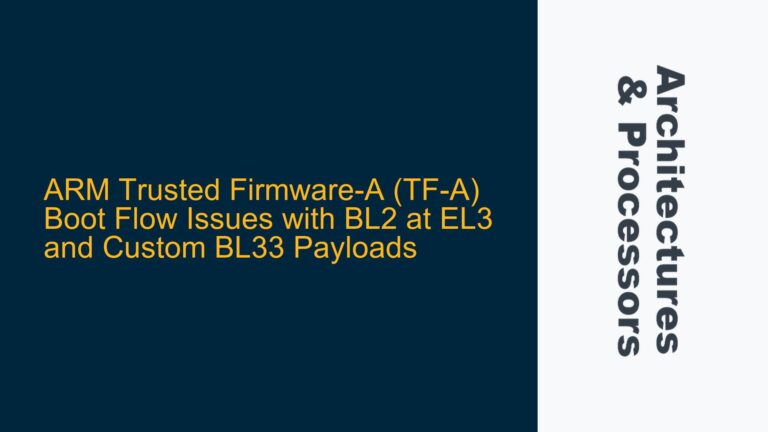Incorrect Pointer Initialization and Stack Allocation in Linked List Implementation
The core issue revolves around the incorrect initialization of pointers in a linked list implementation on the ARM LPC2136 microcontroller. The developer attempts to initialize a linked list structure but encounters runtime errors due to improper handling of pointers and memory allocation. The primary symptoms include failure to initialize pointers to NULL, incorrect traversal of the linked list, and potential stack corruption due to improper initialization of pointer variables.
The linked list structure is defined as follows:
typedef struct nodo list_node;
struct nodo {
int count;
char name[20];
struct nodo *p1;
};
The developer attempts to initialize the list using the following code:
list_node *newlist = {NULL}, *aux = {NULL};
This initialization is problematic because it creates a list_node structure on the stack and initializes it with NULL, which is not the intended behavior. Instead, the pointers newlist and aux should be directly initialized to NULL to avoid stack allocation issues.
Additionally, the traversal logic for inserting new nodes into the linked list is flawed. The developer uses the following code to traverse the list:
while(newlist->p1 != NULL) {
newlist = newlist->p1;
}
newlist->p1 = newnode;
This logic fails to correctly handle the case where newlist itself is NULL, leading to runtime errors. The traversal logic should first check if newlist is NULL before attempting to dereference it.
Misuse of Stack Variables and Improper Memory Management
The root cause of the issue lies in the misuse of stack variables and improper memory management. The initialization list_node *newlist = {NULL}, *aux = {NULL}; creates a list_node structure on the stack and initializes it with NULL. This is incorrect because it does not initialize the pointers newlist and aux to NULL but instead creates a temporary structure on the stack that is immediately destroyed, leading to undefined behavior.
Furthermore, the developer attempts to use malloc to allocate memory for new nodes but does not handle the case where malloc fails to allocate memory. This can lead to null pointer dereferencing and runtime errors. The following code snippet highlights the issue:
list_node *newnode = (list_node*) malloc(sizeof(list_node));
if(newnode) {
// Initialize newnode
}
If malloc fails, newnode will be NULL, and the code will attempt to dereference it, causing a runtime error. Proper error handling should be implemented to ensure that malloc failures are gracefully handled.
The traversal logic also suffers from improper handling of the newlist pointer. The developer uses newlist->p1 to traverse the list, but this assumes that newlist is not NULL. If newlist is NULL, attempting to access newlist->p1 will result in a null pointer dereference. The correct approach is to first check if newlist is NULL before attempting to traverse the list.
Correcting Pointer Initialization and Implementing Robust Linked List Traversal
To resolve the issues, the following steps should be taken:
-
Correct Pointer Initialization: The pointers
newlistandauxshould be initialized directly toNULLinstead of using the incorrect{NULL}syntax. The correct initialization is:list_node *newlist = NULL, *aux = NULL;This ensures that the pointers are properly initialized to
NULLwithout creating unnecessary stack variables. -
Handling
mallocFailures: The code should check ifmallocsuccessfully allocates memory before attempting to use the allocated memory. The following code snippet demonstrates the correct approach:list_node *newnode = (list_node*) malloc(sizeof(list_node)); if(newnode == NULL) { // Handle memory allocation failure return NULL; } // Initialize newnodeThis ensures that the program does not attempt to dereference a null pointer if
mallocfails. -
Implementing Robust Linked List Traversal: The traversal logic should be modified to handle the case where
newlistisNULL. The following code snippet demonstrates the correct approach:if(newlist == NULL) { newlist = newnode; } else { aux = newlist; while(aux->p1 != NULL) { aux = aux->p1; } aux->p1 = newnode; }This ensures that the program does not attempt to dereference a null pointer and correctly handles the insertion of new nodes into the linked list.
-
Avoiding Stack Corruption: The initialization of pointers should avoid creating unnecessary stack variables. The correct initialization ensures that the pointers are properly initialized without risking stack corruption.
By following these steps, the linked list implementation can be corrected to avoid runtime errors and ensure proper memory management. The corrected code will be more robust and less prone to errors, making it suitable for use in embedded systems such as the ARM LPC2136 microcontroller.
Summary of Corrected Code
The following table summarizes the changes made to the code to address the issues:
| Issue | Incorrect Code | Corrected Code |
|---|---|---|
| Pointer Initialization | list_node *newlist = {NULL}, *aux = {NULL}; |
list_node *newlist = NULL, *aux = NULL; |
Handling malloc Failures |
No check for malloc failure |
Check for malloc failure and handle it |
| Linked List Traversal | Incorrect traversal logic | Correct traversal logic with null pointer check |
The corrected code is as follows:
typedef struct nodo list_node;
struct nodo {
int count;
char name[20];
struct nodo *p1;
};
struct nodo *crearlista_ssid(char *array[5]) {
char *lista2;
list_node *newlist = NULL, *aux = NULL;
for(int i = 0; i <= 4; i++) {
list_node *newnode = (list_node*) malloc(sizeof(list_node));
if(newnode == NULL) {
// Handle memory allocation failure
return NULL;
}
newnode->count = i + 1;
lista2 = strtok(array[i], ",");
lista2 = strtok(NULL, ",");
strcpy(newnode->name, lista2);
newnode->p1 = NULL;
if(newlist == NULL) {
newlist = newnode;
} else {
aux = newlist;
while(aux->p1 != NULL) {
aux = aux->p1;
}
aux->p1 = newnode;
}
}
return newlist;
}
This corrected code ensures that the linked list is properly initialized, memory allocation failures are handled, and the list is traversed correctly. The implementation is now robust and suitable for use in embedded systems.






